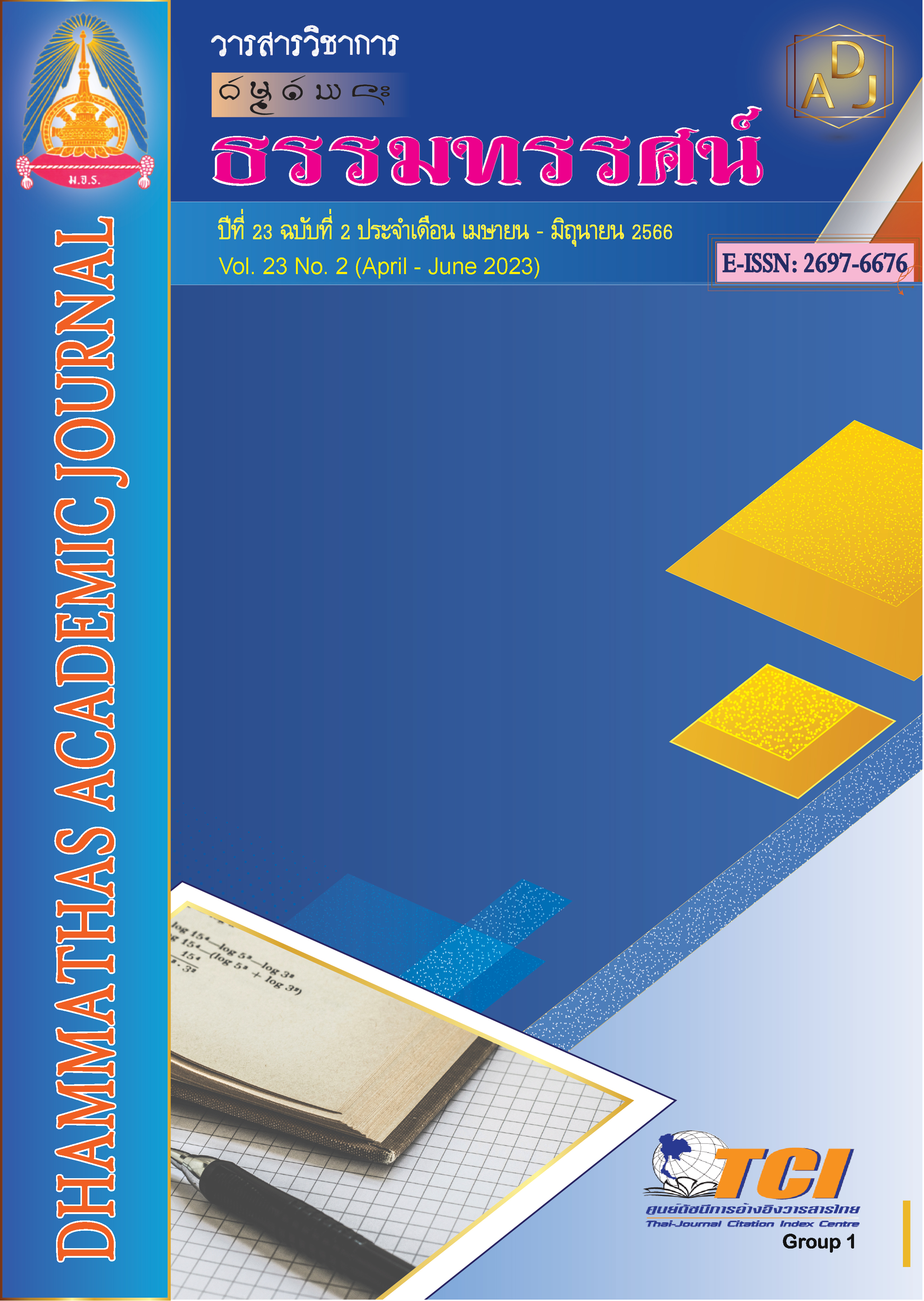Self-determination of Lady Pātipūjikā in the Dhammapada
Main Article Content
Abstract
This Article were as follows: the self-determination of Lady Pātipūjikā in the Dhammapada: Pātipūjikā’s determinations are based on her commitment to goodness and a clear purpose. It is a type of self-determination for the benefits of the future, namely, to be born as a goddess in the Tāvatiṁsā heaven as before. There are elements such as Paññā-dhiṭṭhāna- Pātipūjikā is a person of wisdom, virtue and talents of recalling her past lives; Saccā-dhiṭṭhāna-confidence in the truth and good deeds that she has sustained in Buddhism as well as helping the monks' affairs; Cāgā-dhiṭṭhāna- she likes to offer food and other things to monks, which is a sacrifice of both internal and external wealth; Upasamā-dhiṭṭhāna- Pātipūjikā was determined to make a wish every time she made merit to become a goddess in the heavens. The nature of her determination is her intention to perform the good deeds to make her wish fulfilled.
Article Details

This work is licensed under a Creative Commons Attribution-NonCommercial-NoDerivatives 4.0 International License.
เพื่อให้เป็นไปตามกฎหมายลิขสิทธิ์ ผู้นิพนธ์ทุกท่านต้องลงลายมือชื่อในแบบฟอร์มใบมอบลิขสิทธิ์บทความ ให้แก่วารสารฯ พร้อมกับบทความต้นฉบับที่ได้แก้ไขครั้งสุดท้าย นอกจากนี้ ผู้นิพนธ์ทุกท่านต้องยืนยันว่าบทความ ต้นฉบับที่ส่งมาตีพิมพ์นั้น ได้ส่งมาตีพิมพ์เฉพาะในวารสาร วิชาการธรรม ทรรศน์ เพียงแห่งเดียวเท่านั้น หากมีการใช้ ภาพหรือตารางของผู้นิพนธ์อื่นที่ปรากฏในสิ่งตีพิมพ์อื่นมาแล้ว ผู้นิพนธ์ต้องขออนุญาตเจ้าของลิขสิทธิ์ก่อน พร้อมทั้ง แสดงหนังสือที่ได้รับการยินยอมต่อบรรณาธิการ ก่อนที่บทความจะได้รับการตีพิมพ์References
พระธรรมปิฎก (ป.อ.ปยุตฺโต). (2545). พจนานุกรมพุทธศาสตร์ ฉบับประมวลธรรม. (พิมพ์ครั้งที่ 11). กรุงเทพฯ: สหธรรมิก.
พระพรหมโมลี (วิลาส ญาณวโร). (2545). วิมุตติรัตนมาลี เล่ม 2. กรุงเทพฯ: ดอกหญ้า.
พระราชวิสุทธิโสภณ (วิลาส ญาณวโร). (2522). วิมุตติรัตนมาลี เล่ม 3. กรุงเทพฯ: กรมการศาสนา กระทรวงศึกษาธิการ.
มหาจุฬาลงกรณราชวิทยาลัย. (2539). พระไตรปิฎกภาษาไทย ฉบับมหาจุฬาลงกรณราชวิทยาลัย. กรุงเทพฯ: มหาจุฬาลงกรณราชวิทยาลัย.
_______. (2561). อรรถกถาภาษาภาษาไทย ฉบับมหาจุฬาลงกรณราชวิทยาลัย. กรุงเทพฯ: มหาจุฬาลงกรณราชวิทยาลัย.
ราชบัณฑิตยสถาน. (2546). พจนานุกรม ฉบับราชบัณฑิตยสถาน พ.ศ. 2542. กรุงเทพฯ: นานมีบุ๊ค.

